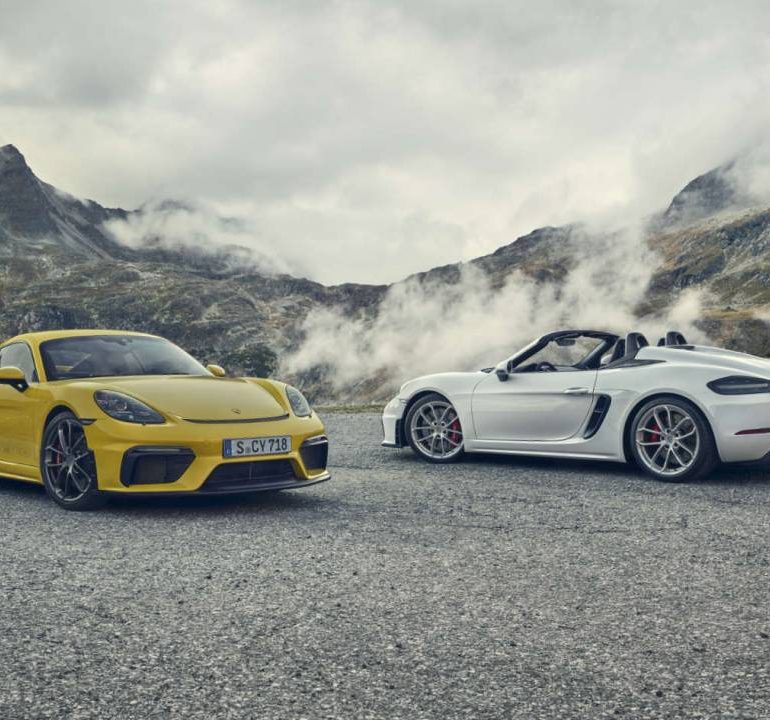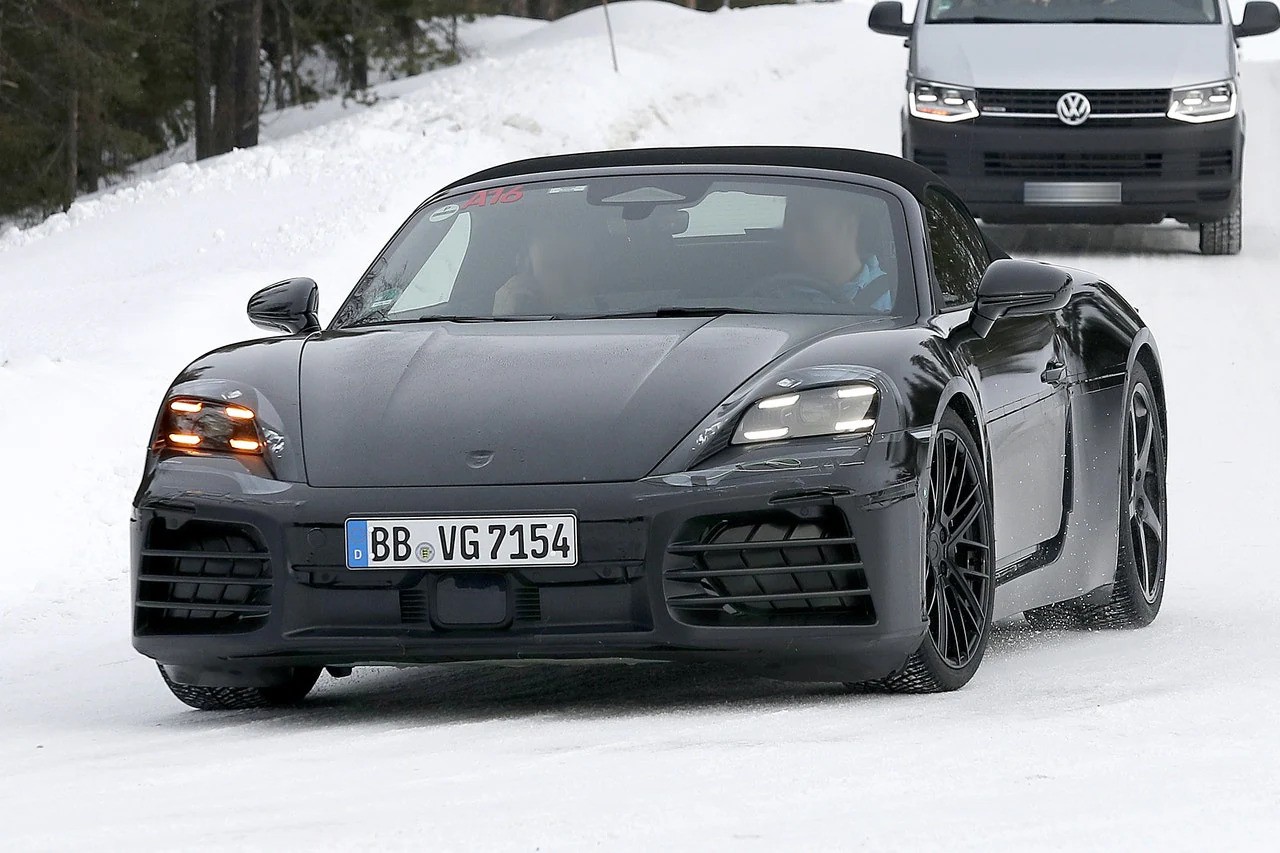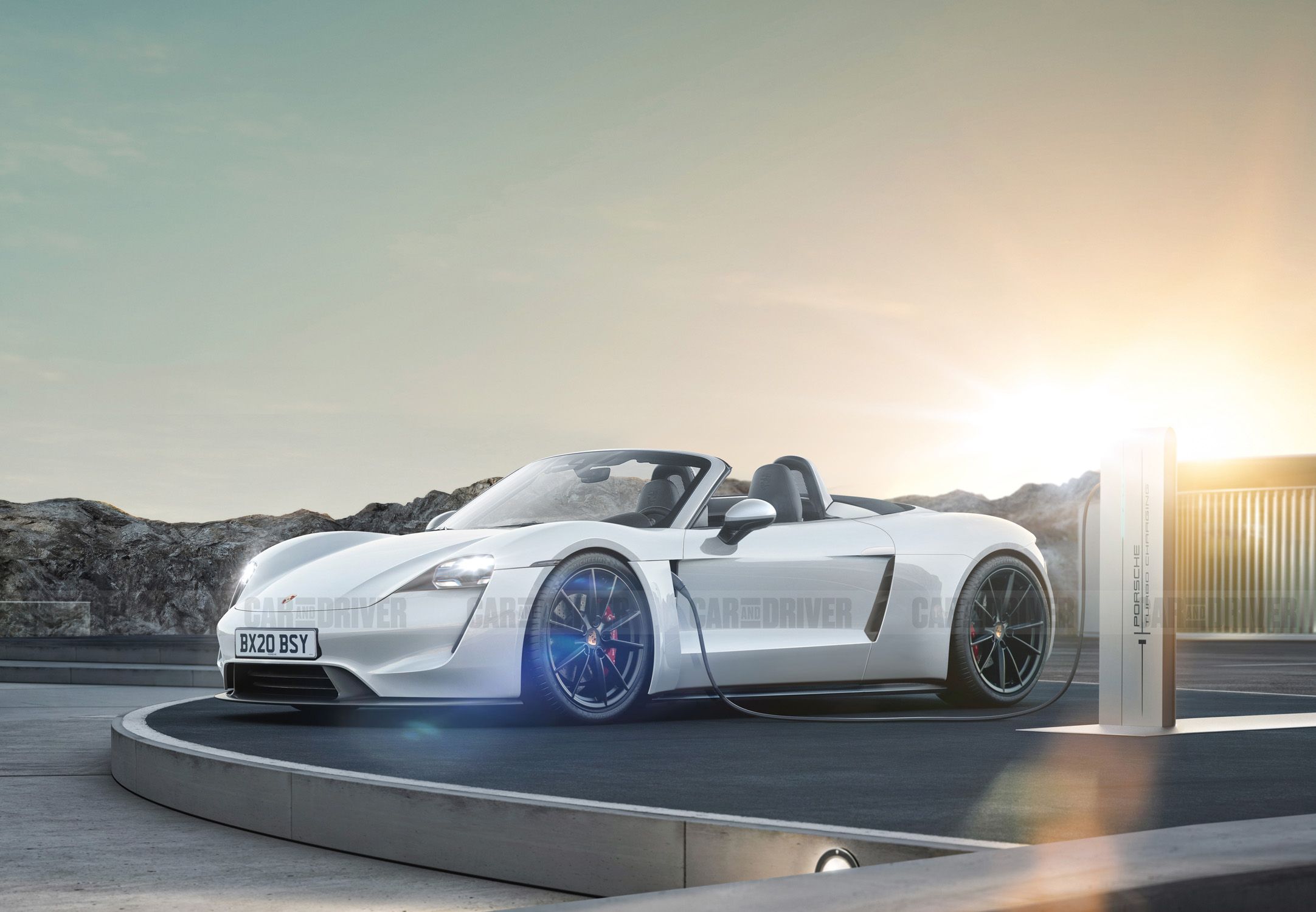It’s official. Porsche has confirmed that they will cease production of the internal-combustion-engined 718 Cayman and 718 Boxster by the end of 2025. Of course, the writing has been on the wall for some time and it’s long been known that that this change has been lying in wait in preparation for the succession of the new 718 Cayman and 718 Boxster EV. Some have taken this in with dread, others with excitement.
If you live in Europe, these sentiments are even more pronounced, due to convoluted EV-centric motor vehicle regulations that have come into effect on the continent—over there, sales of the current Cayman and Boxster (and even gas-powered Macans) have already been discontinued for several months now. The last phase of units set aside for other regions—with the U.S. being the most significant—will be assembled up until mid-2025.
The Last of the First
As of the time of writing this article, the 718 duo is actually the very last existing Porsche model to not yet have been subject to either hybridization of full-on electrification. Even the Porsche 911 has embraced a hybrid powertrain via its upcoming “992.2” face-lifted models. Exact specifications for the incoming 718 Cayman EV are still scarce at best, and most of the information out there is derived mostly from speculation or creative thinking. What we do know for sure though, is that the next few months are going to be the final window in which you can order what will likely be the last iteration of a gas-powered Cayman and/or Boxster.
There’s a reason I’ve written that last sentence with a relatively open-minded tone. As an optimist—and knowing what I think I know about Porsche—there’s still a chance that we could see some form of a non-EV Cayman or Boxster persevere in this new era. Perhaps a hybrid powertrain could be reserved for the likes of an RS variant? Or, could we see it return for certain anniversary models? At the end of the day, it’s just a thought and there’s nothing more in it than just a purist’s biggest wishes.
Other outlets tend to be a bit more hard-lined in their assessments, in that they’ve determined that there will be no more gas-powered (hybrid or ICE) Caymans and Boxsters, period. It’s been reported that Porsche won’t invest in a next-gen combustion engine for the duo, although Albrecht Reimold—Porsche’s Production Manager—didn’t explicitly rule out the possibility of fitting a non-EV powertrain from another platform, into say, the hypothetical RS variant I mentioned earlier. Wishful thinking, or something to hope for?
Past Performance: The Best Indicator of Future Performance
In his interview with Automobilwoche, Reimold went on to elaborate that he had already driven the prototype 718 EV and remarked it to be a “real fun car”, because, of course he did. But, if any automaker deserves the benefit of the doubt when it comes to fulfilling promises of that nature, it would be Porsche. Afterall, the German luxury car company has proven that it’s committed to those basic mantras through its first EV—the precedence-setting Porsche Taycan—which over 5 years, has formed a very solid foundation on which to kick-start their EV-olution.
With that being said, the 718 duo is not the first, or even second, fully-electric Porsche model to be produced—that distinction goes to the Taycan and the new Macan EV. However, it remains a very significant milestone in the overall context of the brand, as it will become their first EV “sports car”, with the aforementioned being distinctively utilitarian platforms in sedan and crossover configurations, respectively. In that way, it could serve as the template on how Porsche will integrate electric drivetrains with sporty 2-door coupes (and convertibles) going forward.
There’s both anecdotal and data-backed conclusions that can be made on whether going EV is the right decision—for the 718, or just in general—but it’s clear that Porsche will be pressing ahead, if not doubling-down, on its electrification strategy. The latest news confirms as much. But—and it’s a big “but”—there are still pathways that Porsche can take to preserve the combustion engine in some format, for some portion of its cars. In fact, Porsche is spearheading the creation of such pathways, so to speak, with their eFuels initiative at the forefront of a movement to keep gas-powered engines around—not just as an alternative, but as a crucial factor in the greener-environment-equation.






